
Quetta: An outsider’s perspective
My first trip to the city was an eye opener and debunked many myths about the province.
The city of Quetta has been in turmoil for years, and with that comes many misconceptions about the capital of Pakistan’s largest province, Balochistan.
One such mistaken belief is that while visiting Quetta one must dress in the local attire and avoid any western clothing, such as jeans, so as to not stand out as a non-resident. For someone who has heard these remarks repeatedly, I was extremely curious, to say the least, ahead of my visit to Quetta for the first time, even more so because it is believed that the people of Balochistan do not like the people of Punjab, where I am from.
This couldn’t be more far from the truth. The hospitality of the people of Quetta is incomparable; they were extremely welcoming towards us, which I was not expecting at all.
The vast majority of Quetta’s population comprises of Pakhtuns. Women are not seen outside their homes, unlike other big cities, such as Karachi and Lahore. Surrounded by sandy mountains and barely any greenery, the city presents a very ‘brownish’ look. According to one of my friends, Quetta looks like a dry fruit. I agree.
The entire city goes dark after sunset. Business activities come to a halt and markets close down as soon as the call for Maghrib prayers is heard. Hence, there is no nightlife as such – partly due to its closed environment and the vulnerable security situation which stems from the city’s close proximity to the Afghan border. For this reason, various check posts can be seen across the city.
Religious parties, the Jamiat-e-Ulema-e-Islam in particular, seem to have a large following in Quetta, which quite apparent from the fluttering party flags and frequent wall chalking in favour of such parties at various places around the city.
 "Quetta is like a dry fruit"Photo: Kiran Wali
"Quetta is like a dry fruit"Photo: Kiran WaliOne of the most interesting parts of my visit was being able to interact with the Hazara community. Members of the peaceful community mainly reside in confined areas due to repeated targeted attacks on them. They have their schools, markets, and mosques inside the confined areas, where they live isolated from the rest of the city. It is rather unfortunate that they cannot move around in their own city because of constant threats. Hazaras are easily recognised due to their features, making it much harder for them to keep their identity hidden.
According to one of the residents of the city, religion is just one of the many causes of unrest in Quetta. He fears that there are some “hidden forces” involved in creating a divide between the Baloch and Pakhtuns of Balochistan, which only adds to the conflict and chaos in the region. He also claims that the results of this divide are gradually becoming more apparent.
I asked one of the locals about his thoughts on the claims of ‘India’s backing’ of militants disguised as Baloch separatists and his response was,
“Of course India is supporting them! Who else is providing them with funds and weapons while they hide inside faraway mountains?”
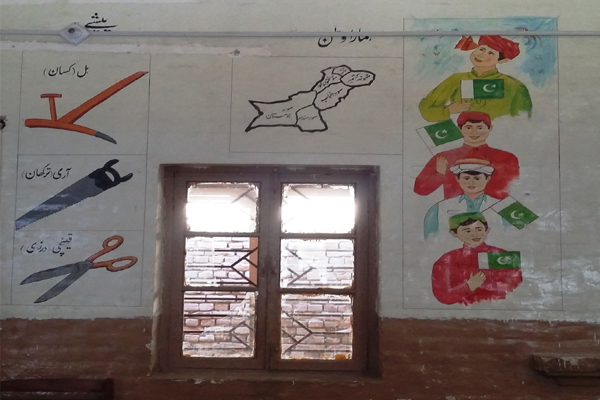 Inside a classroom, Pakistan’s map & people of all four provinces drawn by studentsPhoto: Kiran Wali
Inside a classroom, Pakistan’s map & people of all four provinces drawn by studentsPhoto: Kiran WaliWhile still not at par with the big cities of Pakistan, Quetta is steadily progressing in the field of education for girls; there is a growing determination amongst young girls to seek education and succeed in their respective fields of interest. The girls, along with holding on to their religious values, want their own independence and space in the outside world – a level of freedom where they can pursue their dreams through education and by exploring new horizons.
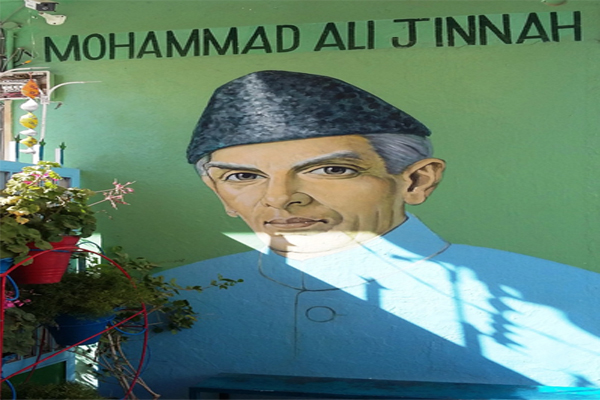 Jinnah painted on the wall of a school in Quetta.Photo: Kiran WaliBesides,
Jinnah painted on the wall of a school in Quetta.Photo: Kiran WaliBesides,Another interesting aspect was that every school I visited had pictures of Quaid-e-Azam Mohammad Ali Jinnah either hanging or painted on the walls. Further, all the schools had Pakistani flags hoisted on their buildings.
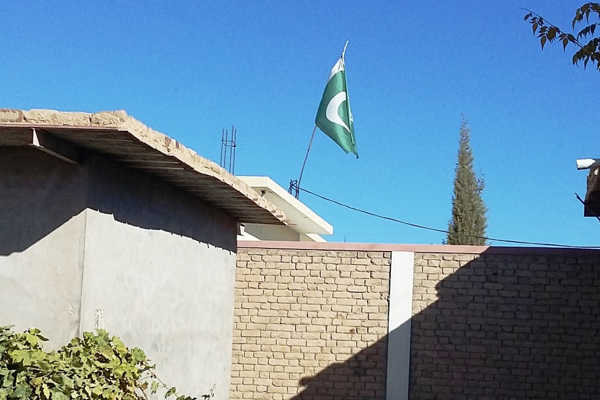 Pakistan flag on a rooftop in QuettaPhoto: Kiran Wali
Pakistan flag on a rooftop in QuettaPhoto: Kiran WaliIn fact, one can see a great number of Pakistani flags fluttering over rooftops in Quetta, which is amazing because flags are usually displayed on national days only in other cities. Upon seeing a Pakistani flag on a rooftop of a friend’s home, I said to her mother,
“It’s nice to see the flag fluttering on your rooftop.”
She replied,
“This flag has been there for the past 20 years. Some militants had been trying to threaten us saying that we will have to face consequences if we didn’t take it off, but we never gave in to their demands. After some time, other people in our neighbourhood also got over the fear and hoisted flags on their rooftops as a gesture of their love for Pakistan.”
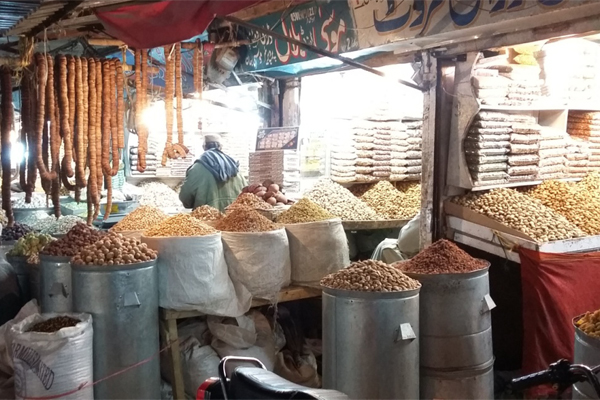 Dry fruit shops in one of the famous markets of QuettaPhoto: Kiran Wali
Dry fruit shops in one of the famous markets of QuettaPhoto: Kiran WaliAnother thing Quetta is known for is apples and anyone visiting the city always takes apples back with them. Dry fruits are another popular specialty. Varieties of blankets from across the world are available for sale during the harsh winters, which also make good tokens to take home for visitors/tourists.
Development is severely lacking in the city but the federal government cannot be entirely blamed for this. One of the residents shared that Balochistan’s politicians and ministers have been returning development funds back to the federal government simply because they do not want to develop the province.
They then exploit the lack of development as a propaganda tool against the state and cry about unjust treatment by the central governments, the local said.
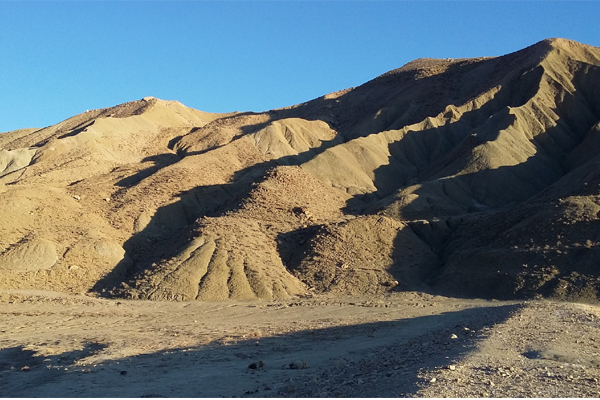 Eerily beautifulPhoto: Kiran Wali
Eerily beautifulPhoto: Kiran WaliThe general public is misguided and their sentiments are turned against the state through false propaganda by these overly influential people. This can also be validated by the fact when militants willingly surrender before the state, they also reiterate the same thing,
“We have been misguided by the people on top. This azaad Balochistan thing is a hoax.”
My first trip to the city was an eye opener and debunked many myths about the province. Even though Quetta may not be considered the best representative of the entire province, it holds importance as it is the provincial capital.
There are definite (and maybe even deliberate) flaws in what the media – especially the international media – portrays about the province; the same media that hardly sheds light on how several ‘foreign forces’ are actively involved in the destabilisation of Balochistan.
Despite that, there is no denying that the province which is of utmost importance needs immediate attention. The situation on ground is far more complex than what keeps surfacing in the media. Hence, generalising things based on selectively highlighted issues would be extremely unfair.
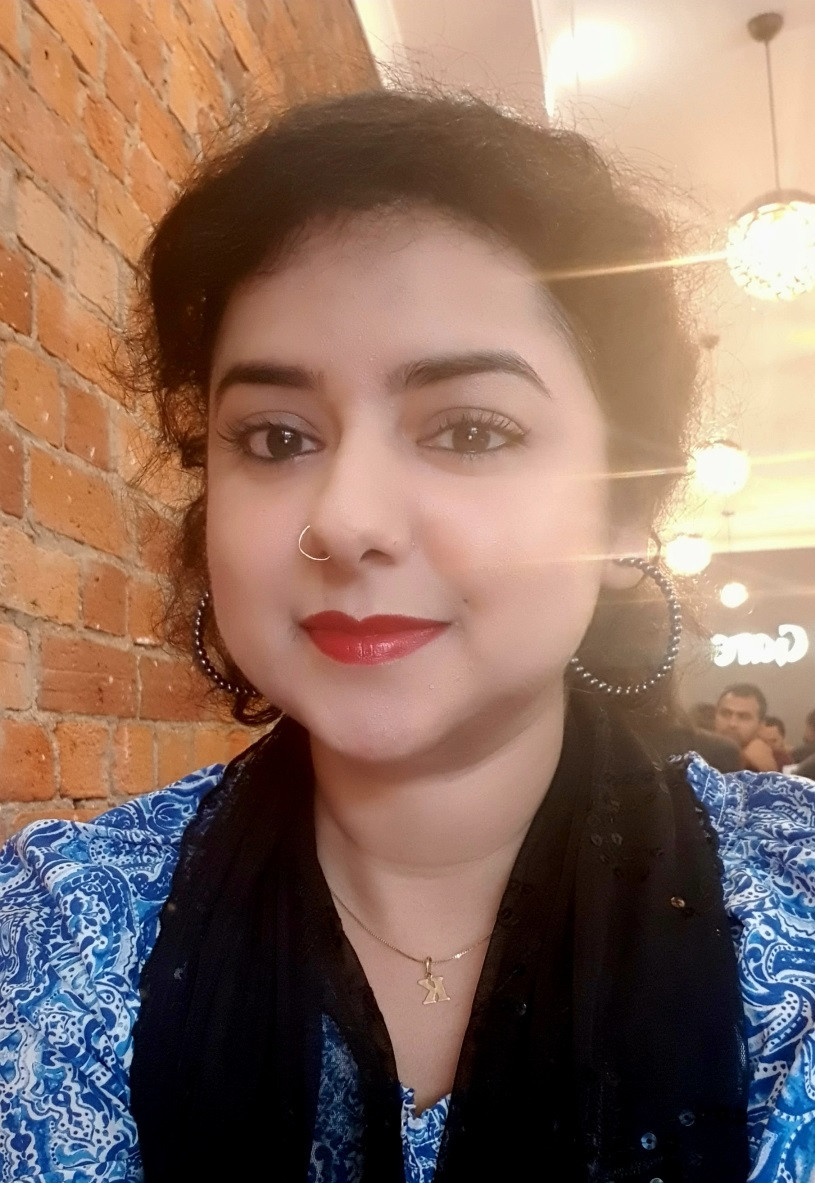
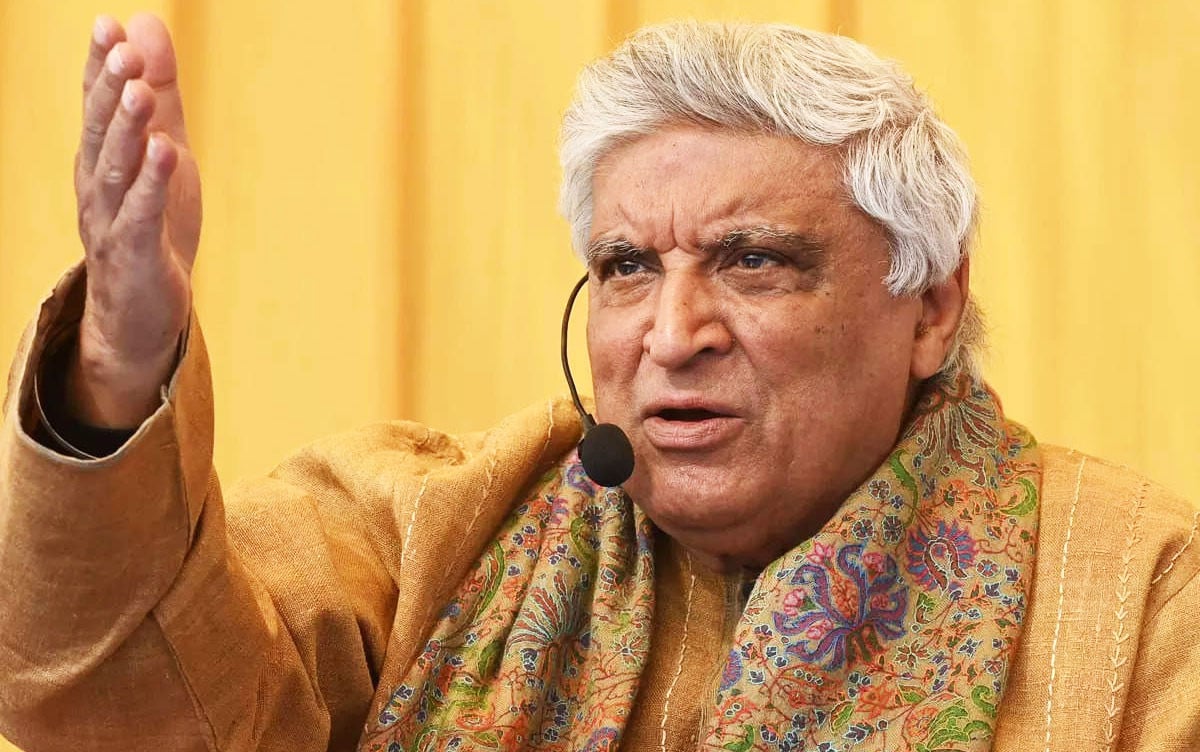
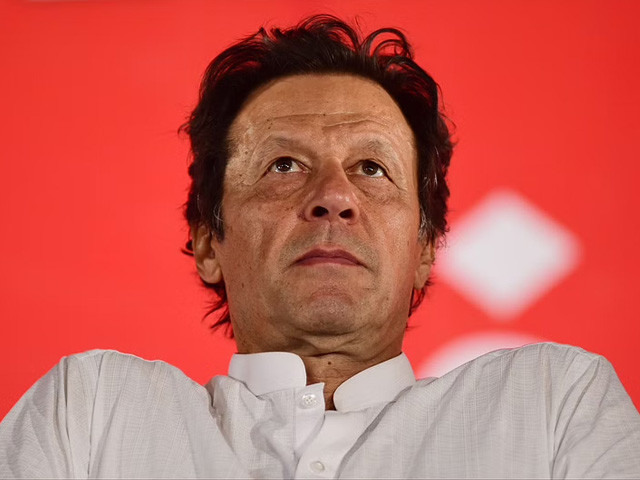

COMMENTS (26)
Comments are moderated and generally will be posted if they are on-topic and not abusive.
For more information, please see our Comments FAQ